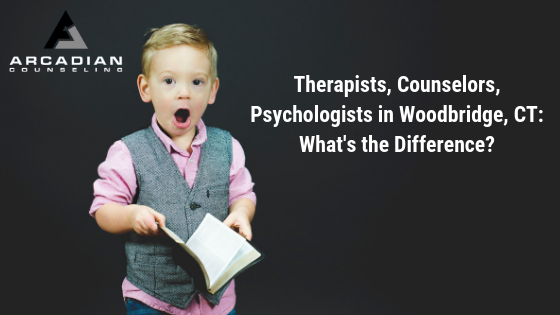There are countless reasons why people seek therapy.
A while back, we explored ways that counseling helps anxiety. Let’s look at some of the reasons why you might benefit from therapy right now.
- You find yourself at a crossroads or a transition in your life.
- You feel stuck; not taking risks, not meeting goals, and unsure which direction to go.
- You’re not taking care of yourself or prioritizing your health and wellbeing.
So maybe you are facing some challenges in life and want to talk to a professional.
But you’re not sure who you should see. A therapist? A counselor? A psychologist?
Maybe you don’t even know what the difference is. Furthermore, as you search through Psychology Today or any the other online provider directories for counseling or therapy, you become increasingly confused with the variety of letters you see after each person’s name.
You see letters like LCSW, LPC, LMFT, PsyD or PhD. But what do they all mean? And which one should you choose?
Let’s break it down.
Typically, a counselor or therapist is someone with a Master’s Degree while a psychologist is someone with a Doctorate Degree.
But what about all those letters mean?
LPC stands for Licensed Professional Counselor, LCSW stands for Licensed Clinical Social Worker, and LMFT stands for Licensed Marriage and Family Therapist. Anyone with an LCSW, LPC, or LMFT after their name has completed a Master’s Degree program and is licensed to practice in their state (or potentially others) as a therapist or counselor.
Anyone with a PhD or PsyD after their name (and typically a Dr in front) is a psychologist who’s completed a Doctoral Degree program in psychology.
What’s the difference between a PhD and a PsyD you ask?
A PhD doctoral program is researched-based while a PsyD doctoral program is clinical based. Both are qualified to perform therapy, one just spent a lot more time focusing on research in school.
So now that we have cleared that up, how do you know who to call?
Part of your decision may be personal preference or familiarity with one of the fields of study above. However, a better approach might be to first consider a provider’s specialty or focus area. Be clear on what you want to work on whether it’s relationship issues with your spouse, parenting issues, depression, grief, anxiety, or career counseling. Of course, there may be a multitude of other reasons why any person seeks out therapy.
Once you know what you want to focus on, you can search for providers who have specialized training on the issues you want address in therapy.
For example, you may search, “best counselor near me” or “anxiety counselor near me.”
For the broadest search results, you can simply search, “counselor near me” or “therapist near me” and then you can narrow it down by location, specialty, gender, etc.
Life is short. Don’t spend it struggling. If you need help learning to manage your anxiety or feel stuck and need help, find an awesome therapist, psychologist or counselor you like and trust to help you get back in the driver’s seat.
James Killian, LPC is the Principal Therapist & Owner of Arcadian Counseling in New Haven, CT where they specialize in helping over-thinkers, high achievers, and perfectionists reduce stress, increase fulfillment and enhance performance so they can move From Surviving To Thriving.

